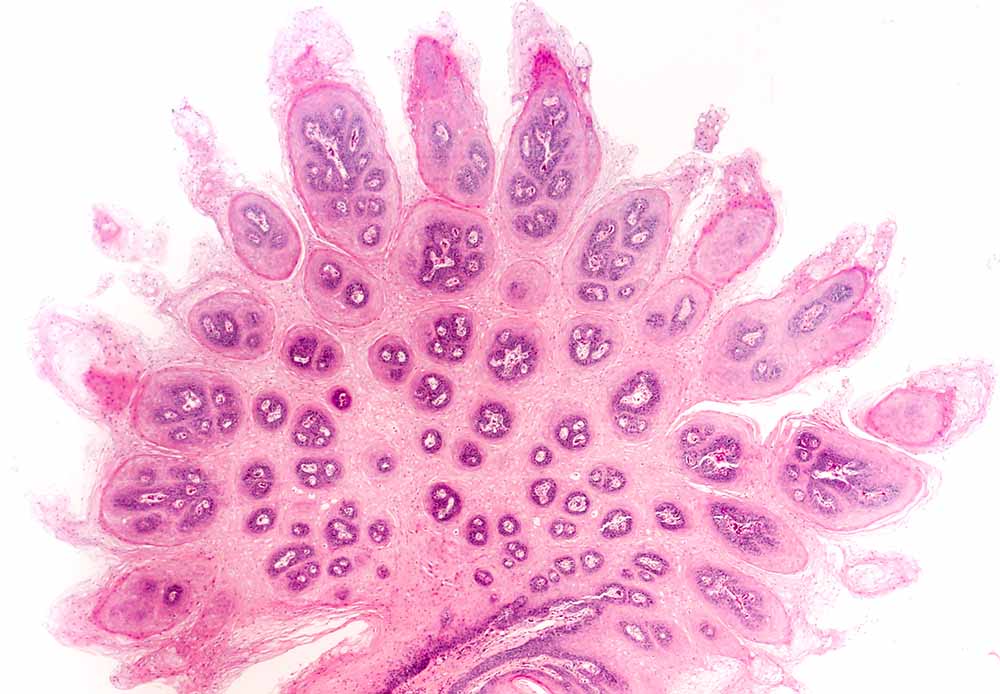Oral HPV Testing
HPV refers to the human papillomavirus. Certain strains of this disease can lead to cancer. How can you protect yourself from HPV? Is it possible to detect HPV in its early stages?
Tetri’s Smile offers a revolutionary approach to detecting the human papillomavirus – with a swab from the mouth.
We are in collaboration with a private laboratory that has developed the most convenient method in the world for diagnosing HPV in adults and children.
What is the oral HPV test?
The Oral HPV Test is a real-time PCR test that allows for the qualitative diagnosis of the human papillomavirus in samples taken from the oropharynx. It detects 14 high-risk genotypes of papillomavirus infection (16, 18, 31, 33, 35, 39, 45, 51, 52, 56, 58, 59, 66, 68).
- Developed in a laboratory (LDT).
- Approved on the cobas 6800/8800 systems.

Important Information
There are no at-home oral tests for HPV to check the health of the throat.
Price
All adults (18+) should be tested for HPV. Cases of oral cancer are increasing every year.
Why test for HPV?
People can unknowingly spread this dangerous disease. Therefore, doctors recommend taking tests every 3-5 years, starting at age 25
Early detection of high-risk oral HPV types allows for the infection to be controlled with medication.
Important Information
There are over 100 different oncogenic strains of HPV, and about 40 of them can affect the oral cavity, throat, and genital organs. In the United States, oral papillomavirus occurs in approximately 3.6% of women and 10% of men.
Types of HPV progression
Clinical – manifested as papillomas/condylomas.
Subclinical – the patient does not experience symptoms, but signs of human papillomavirus are found during examination by a specialist.
Latent – can only be detected by test results.
High-risk human papillomavirus strains usually progress without obvious symptoms. Doctors associate about 70% of cases of oral and throat cancer with these strains.
Natural childbirth
Unprotected sex
Multiple sexual partners
Smoking
Alcohol abuse
Important!
In the United States, human papillomavirus is one of the most common sexually transmitted infections. It can also affect adults who are not sexually active and children before puberty.
Human papillomavirus testing at Tetri's Smile
At our clinic, you can undergo an oral HPV test annually. We strongly recommend this procedure for both men and women. It is important for women to take this test even if they regularly see a gynecologist.
Available to everyone
Quick testing
Accurate results
Minimally invasive material collection
No medical insurance required
Contact us to learn more about the new papillomavirus test and how to protect your health.
What if the result shows up as positive?
For patients with a positive test result for any type of high-risk oral HPV, we recommend:
Undergoing a thorough examination by an otolaryngologist (ENT doctor).
Being under medical supervision in accordance with professional recommendations, medical history, and preliminary screening results.
The detection of HPV does not always confirm the presence of malignant processes. In the initial stage (1-3 years), the virus replicates but does not integrate into chromosomes. During this time, it can be weakened or eliminated.
However, the risk of oncology increases with prolonged chronic development of high-risk infection. Therefore, it is important to detect the problem in time so that proper treatment can help the patient overcome the disease.
Get tested at Tetri's Smile clinic
At the appointment stage, a specialist will advise you on how to prepare for the procedure. If you are taking antibiotics, please inform the doctor in advance.
Brush your teeth
Use mouthwash
Eat
Smoke
The doctor uses a disposable cotton swab/spatula to sweep the mucous membrane of the mouth (inner surface of the cheeks, tonsils, or back wall of the larynx).
The process takes only a few seconds. The collected material is placed in a separate tube with a transport solution and sent to the private laboratory for analysis.
Within 1-3 days, your doctor receives and interprets the results.
Human papillomavirus can be completely eliminated, but it often disappears only temporarily and returns after several years. Therefore, doctors recommend taking tests every 3-5 years, starting at age 25

